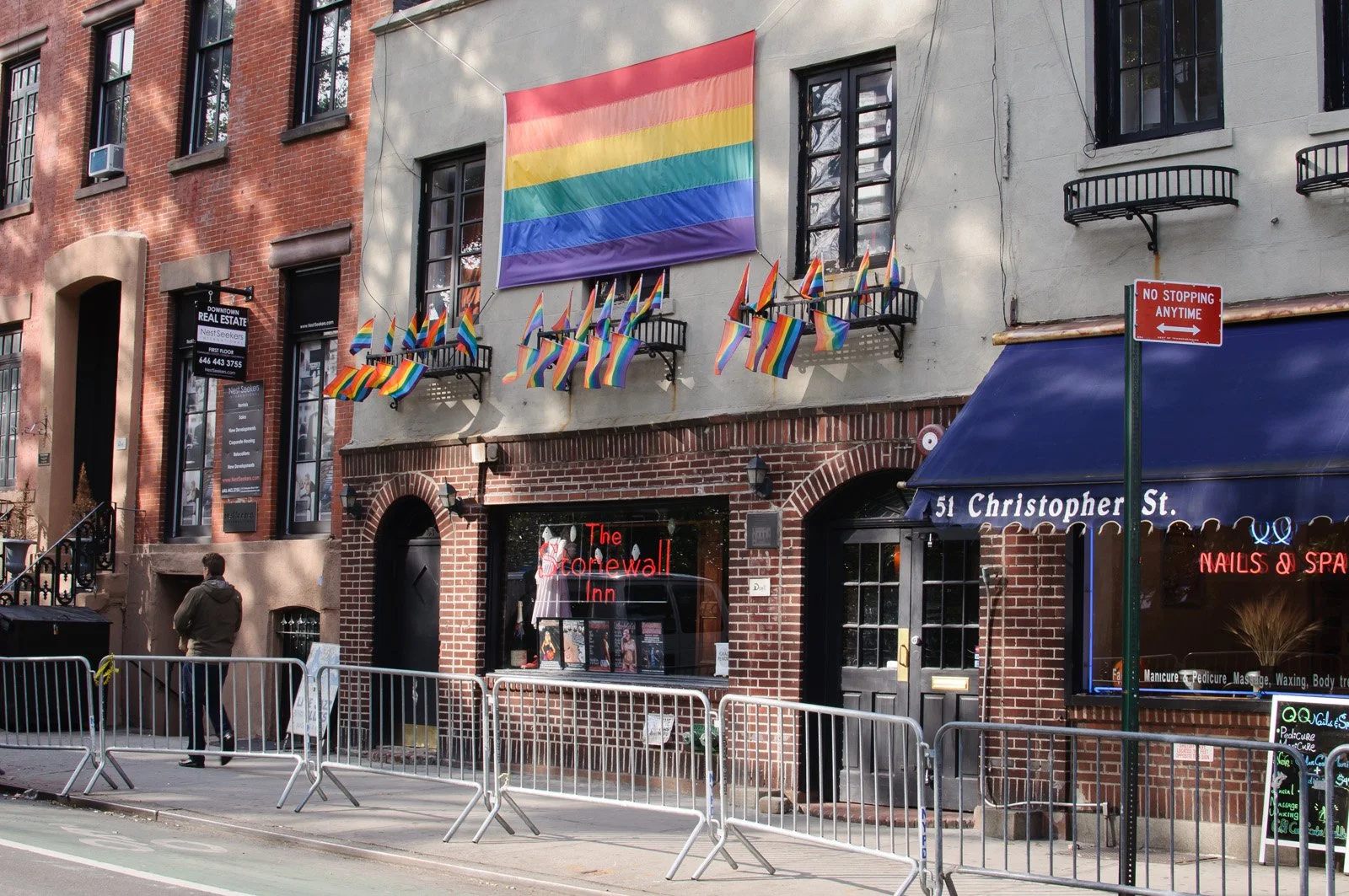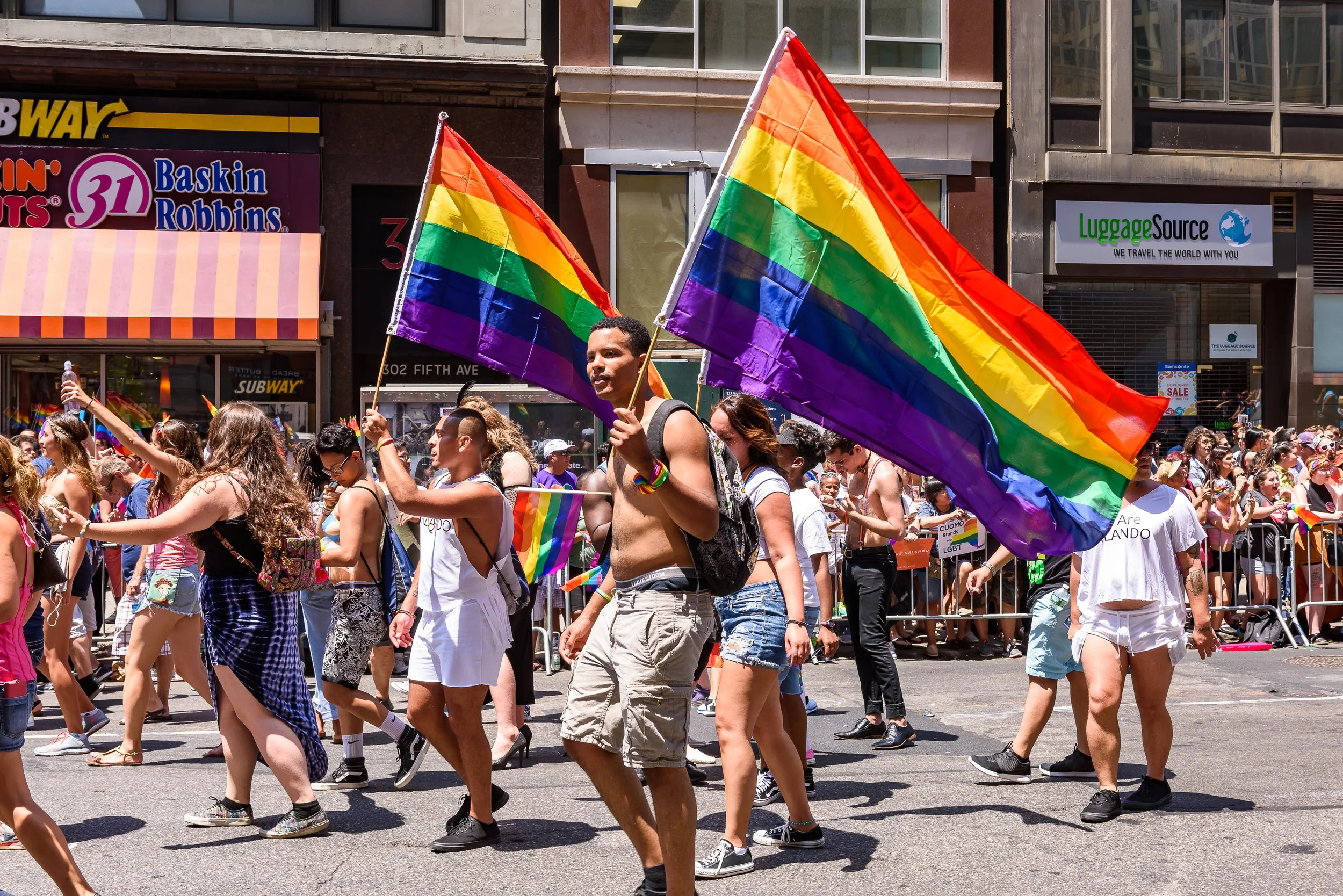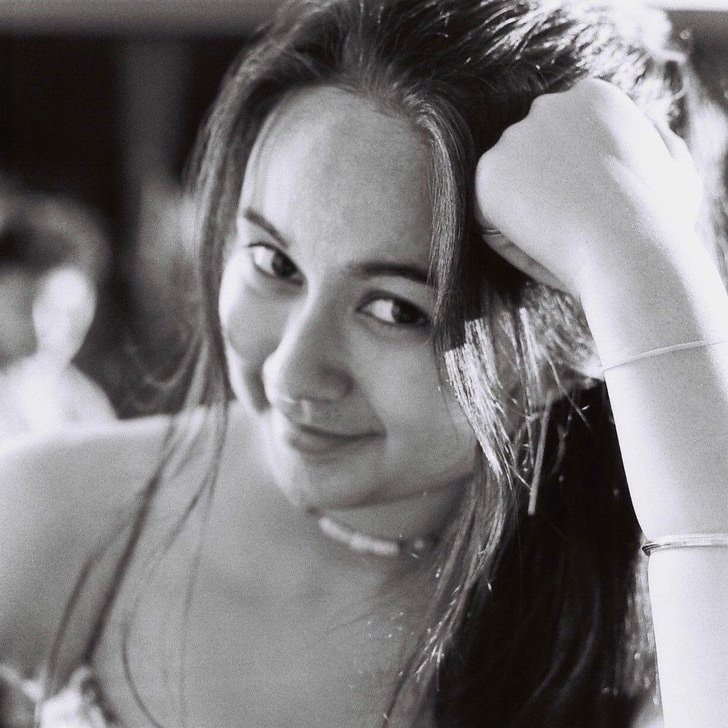53 years after the original Pride parades took place, get to know the historic events that changed the gay rights movement forever.
The Belfast Pride Festival is one of many that take place across Europe every year. David Jones. CC BY 2.0
In the past fifty years, the Pride movement has swept the globe and annual Pride month celebrations and parades attract members of the LGBTQ+ community and their allies in equal measure. This June marks 53 years since the first Pride parades took place in New York, Los Angeles, and Chicago in 1970 to commemorate the infamous Stonewall Riots that occurred just a year prior. The historic riot at the Stonewall Inn, a gay bar in New York City’s Greenwich Village neighborhood, was a crucial turning point for the gay rights movement both in the United States and around the world and led to a number of significant advancements not only for the LGBTQ+ community, but also those involved in the larger civil rights movements occurring at the time as well.
Protestors gather in New York City during the aftermath of the Stonewall Riots. Getty Images. CC BY-NC-ND 2.0
Early in the morning on June 28th, 1969, nine members of the New York City police force conducted a raid at the Stonewall Inn, which quickly devolved into a riot as patrons and other residents in the area reacted to the cruel handling of those in the bar by the police. According to police reports, they had been ordered to clear out the bar because it was supposedly operating without a liquor license, but given the bar’s reputation as a refuge for young gay, lesbian, and transgender people, these motives were considered highly suspect. At the time, a criminal statute in New York made it illegal for anyone to wear fewer than three articles of so-called gender-appropriate clothing, which led to the arrest of a large number of the bar’s patrons and employees. The incident was the third such raid that had occurred in various gay bars in Greenwich Village in a short period of time, but this was the first time it sparked a much larger reaction: six further days of violent protests between supporters of the gay rights movement and the police throughout the neighborhood.
The first pride parade took place on June 28th, 1970, one year after the Stonewall Riots. Leonard Fink. CC BY-SA 2.0
The gay rights movement in the United States had formally begun decades earlier when Henry Gerber, a German immigrant, founded The Society for Human Rights in 1924. Although they were disbanded by police after only one year, by that point the organization had already established its “Friendship and Freedom” newsletter, the first newsletter catering to a gay audience in the country. A number of other gay rights organizations formed over the following years, but it was not until after the Stonewall Riots that activism within the LGBTQ+ community really took off, with countless publications and organizations founded in the weeks after the event. On the one year anniversary of the riots in 1970, thousands of people participated in the “Christopher Street Liberation Day” march through New York City from the Stonewall Inn to Central Park – the first Pride parade in America – chanting “Say it loud! Gay and proud!” Despite this sudden increase in the visibility of the gay rights movement, it was not until June 2003 that the US Supreme Court overturned the “homosexual conduct” law which finally decriminalized sexual conduct between same-sex couples across the whole United States.
The Stonewall Inn now stands in Greenwich Village as a formally recognized National Monument. InSapphoWeTrust. CC BY-SA 2.0
The legacy of the Stonewall Riots has spread far beyond the US, and marks a change in the approach of the gay rights movement to use a strategy of confrontation and direct action in addition to pushing for peaceful political change. By the mid 1970s, Pride marches were taking place in several countries around the world and various gay rights organizations were being established in Australia, Western Europe, and Canada. According to Naomi Moland, a lecturer at American University’s School of International Service, many of the LGBTQ+ organizations around the world looked to similar American establishments for a blueprint on how to best further gay rights in their countries. While there are currently 34 countries around the world where same-sex marriage is legal, there are still 64 countries in which there are specific laws criminalizing homosexuality with punishments ranging from lengthy imprisonment to the death penality.
New York City’s annual Pride celebrations in 2016. Steven Pisano. CC BY 2.0
LGBTQ+ activists in these countries and around the world continue to fight these discriminatory policies, but it is clear that there is still a lot of work to be done. Here are a few organizations that you can learn about and support this Pride month to help in their efforts to achieve true gender equality around the world:
Human Rights Campaign: this US-based organization is the largest LGBTQ+ lobbying organization in the country and has over 3 million members that work to ensure that every member of the LGBTQ+ community can live freely and without fear.
Stonewall: for the past three decades, this organization has driven advocacy in the UK and fought to change public attitudes and policy to ensure that the LGBTQ+ community is represented in institutions across the board.
Asia Pacific Transgender Network: this transgender-led organization works to ensure equality for the transgender and gender-diverse community across Asia and the Pacific in areas ranging from healthcare to social protection.
Todo Mejora: with a specific focus on youth, this Chile-based organization is one of a few in Latin America that provides support to members of the LGBTQ+ community, and publishes research on discrimination experienced by children because of their gender and sexuality.
African Rainbow Family: established in 2014 to combat the anti-gay laws still present in many African countries, this organization provides protection and support for persecuted LGBTQ+ people, as well as advocating for gender equality across the continent.
Tanaya Vohra
Tanaya is an undergraduate student pursuing a major in Public Health at the University of Chicago. She's lived in Asia, Europe and North America and wants to share her love of travel and exploring new cultures through her writing.






